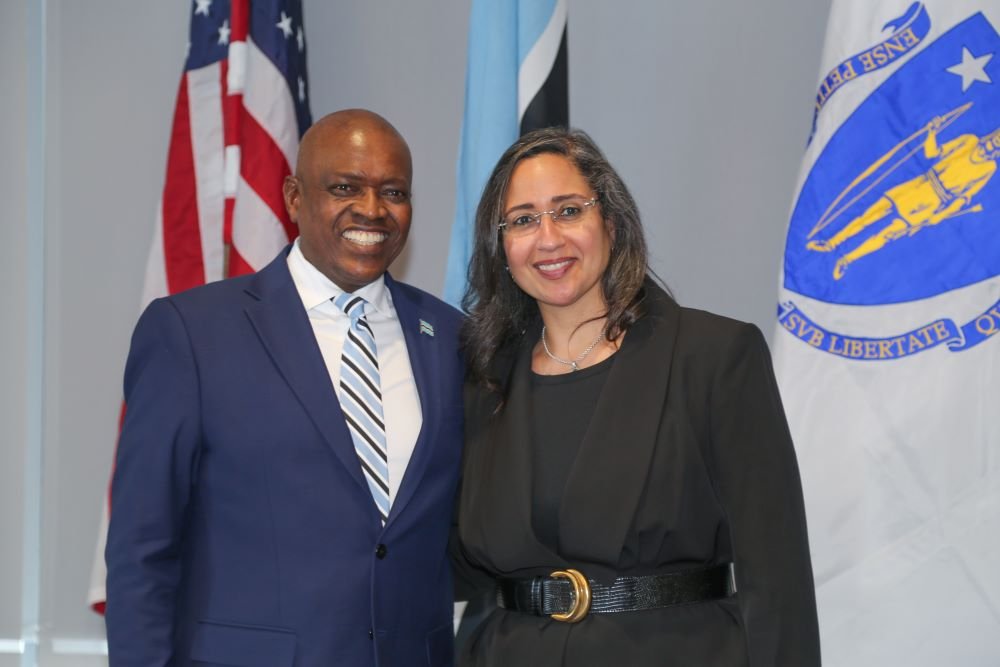Massachusetts Institute of Technology (MIT)’s Legatum Center for Development and Entrepreneurship celebrates more than 15 years of advances in innovation and entrepreneurship with the release of its 15 Year Impact Report.
The report was recently presented at the Innovation in the World’s Growth Markets: Prospering through Entrepreneurship conference held in Cambridge, Massachusetts.
During the event, the Center signed a Memorandum of Understanding (MOU) with the Republic of Botswana to strengthen its efforts to promote innovation across Africa.
“Since our founding in 2007, the Legatum Center has demonstrated the transformative power of entrepreneurship in growing markets,” said Executive Director Dina H. Sherif. “As we celebrate more than 15 years of driving prosperity across Africa, we are now deepening our efforts with a focus on deep tech innovation as the next frontier for the continent’s future. We are proud to partner with Botswana as we chart a path towards realizing this vision.”
Botswana’s President Mokgweetsi EK Masisi delivered the keynote address at the conference. He emphasized the important role that entrepreneurship can play in enabling emerging economies to prosper. President Masisi then highlighted how collaboration with the Legatum Center can foster a culture of innovation and entrepreneurship within Botswana.
“We are deeply aware of the important work undertaken by the Legatum Center for Development and Entrepreneurship,” President Masisi said. “Diversifying our economy and moving towards a knowledge-based economy driven by science and innovation is rooted in our Vision 2036 and is one of my government’s top priorities.” He further expressed Botswana’s keenness to deepen cooperation with the Center and MIT to achieve this.
Masisi added that for Africa to reach its full potential, “we need a wave of innovation and a wave of entrepreneurs who can transform ideas into scalable solutions.” His 15-year impact report for the Legatum Center highlights and showcases the groundbreaking work of our colleagues who are leading the way towards this very goal.
In Kenya, Joyce Kamade, 2023 Foundry Fellow and Kevin Kuhn, 2015 Student Fellow, co-founded Safi Organics with the vision of eradicating poverty among rural farmers. To date, Safi Organics has created 600 jobs and impacted more than 10,000 poor farmers, increasing their incomes by 50% and yields by 30%. Caitlin Dolkart (Legatum Student Fellow 2016) co-founded Flare. Flare is tackling the challenges of emergency care in underserved areas by providing people with a centralized platform and network of ambulances, ensuring faster and safer access to critical services. Currently, Flare is Kenya’s leading provider of emergency services, serving 2 million customers with response times 10 times faster than before.
Speetar stands out as a Libya-based AI-enabled telemedicine platform founded by Mohamed Aburwi (Student Fellow ’21). This innovative platform aims to improve access and affordability in conflict-affected communities, where marginalized and displaced people often struggle to access quality health services. Addressing critical healthcare needs. Speetar has already made a huge impact, so far he has served nearly 2 million users.
In Nigeria, MDaaS Global brings modern, technology-enabled healthcare to clinically underserved communities across Africa. The business currently serves over 260,000 patients and he has established 1,300 clinical partners across his 25 cities in Nigeria.
These fellows are graduates of the Legatum Center’s two fellowship programs. His student fellowships for MIT students include 69 of his alumni who have focused on building ventures in Africa, an astonishing 29 of which are still growing. Comprised of 33 advanced-stage entrepreneurs, the Foundry Fellowship is aimed at established African entrepreneurs who are committed to leading the acceleration and interconnection of Africa’s innovation and entrepreneurship ecosystem. The first program was launched in 2021. The program includes mentorship, leadership training, and an experiential tour of the innovation ecosystem to define the next stage of your entrepreneurship and leadership journey.
The report celebrates the incredible impact of two fellowship programs, as well as a short-term deep tech bootcamp and accelerator program offered by the center’s team in collaboration with innovation ecosystem stakeholders and MIT faculty in Senegal. 244 African entrepreneurs were also recognized. , Rwanda, Uganda, Nigeria, Ghana, Kenya, Tunisia, and Egypt.
The Center for the Future’s primary goal is to foster a passionate community of entrepreneurs and ecosystem leaders who create new markets, strengthen ecosystems, and build the economy of the future. “Currently, most of the world’s growth is coming from what has historically been called the developing world. We are at a point where we start to realize that now is the time. We are not standing up. We are here, we are strong, and it is up to us to create the prosperity we need,” Sherif concluded.
follow me telegram, twitterand Facebookor Subscribe to weekly newsletter Don’t miss it Future updates.Send your tips to editor@techtrendsmedia.co.ke

